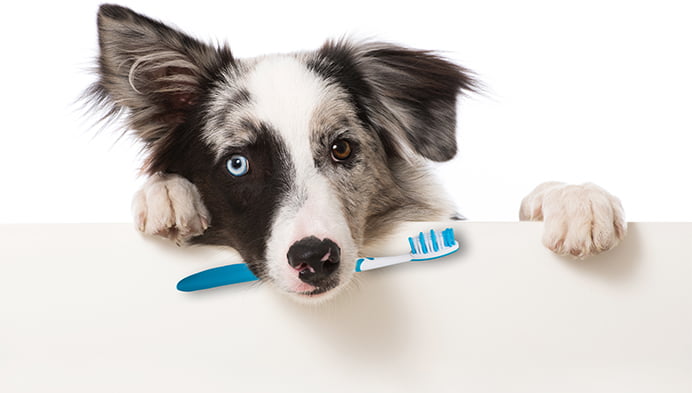Table of Contents
Maintaining your pet’s dental health is crucial for their overall well-being. Regular teeth cleaning can prevent oral issues, improve breath, and enhance your pet’s quality of life. This guide provides essential tips on how to clean pet teeth, ensuring your furry friend has a healthy mouth.

1. Use Pet-Specific Toothpaste and Toothbrush
Using the right tools is essential for effective dental care:
- Pet Toothpaste: Choose toothpaste formulated specifically for pets, as human toothpaste can be harmful to them.
- Pet Toothbrush: Use a toothbrush designed for pets, with soft bristles and an appropriate size for your pet’s mouth.
- Finger Brushes: For beginners, finger brushes can be easier to use and help your pet get accustomed to brushing.
2. Start Slowly and Gradually
Introduce teeth cleaning gradually to make the process stress-free for your pet:
- Get Them Used to It: Start by letting your pet sniff and lick the toothbrush and toothpaste.
- Short Sessions: Begin with short brushing sessions, gradually increasing the time as your pet gets comfortable.
- Positive Reinforcement: Use treats and praise to reward your pet for allowing you to brush their teeth.
3. Establish a Routine
Consistency is key to maintaining good dental health:
- Daily Brushing: Aim to brush your pet’s teeth daily to prevent plaque and tartar buildup.
- Set a Schedule: Choose a specific time each day for brushing to establish a routine.
- Patience: Be patient and persistent; regular brushing will become a habit over time.
4. Use Dental Chews and Toys
Incorporating dental chews and toys can help keep your pet’s teeth clean:
- Dental Chews: Provide dental chews that help reduce plaque and tartar while your pet enjoys a tasty treat.
- Chew Toys: Offer chew toys designed to promote dental health by cleaning teeth and massaging gums.
- Safe Options: Ensure the chews and toys are safe and appropriate for your pet’s size and chewing habits.
5. Consider Dental Wipes and Sprays
Dental wipes and sprays can be effective alternatives to brushing:
- Dental Wipes: Use pet dental wipes to clean your pet’s teeth and gums, especially if they resist brushing.
- Oral Sprays: Oral sprays can help reduce bacteria and freshen breath. Follow the product instructions for safe use.
- Supplementary Care: These products can be used in conjunction with regular brushing for optimal dental health.
6. Monitor Your Pet’s Diet
A balanced diet contributes to overall dental health:
- Quality Food: Feed your pet high-quality, nutritionally balanced food to support their oral health.
- Dry Food: Incorporate dry kibble into their diet to help reduce plaque buildup.
- Avoid Human Food: Avoid giving your pet sugary or starchy human foods that can contribute to dental problems.
7. Schedule Regular Veterinary Check-Ups
Professional dental care is essential for maintaining your pet’s oral health:
- Regular Exams: Schedule regular veterinary check-ups to monitor your pet’s dental health and address any issues early.
- Professional Cleanings: Your vet may recommend professional dental cleanings to remove plaque and tartar buildup.
- Follow Recommendations: Follow your vet’s advice on dental care products and practices specific to your pet’s needs.
Conclusion on How to Clean Pet Teeth
Maintaining your pet’s dental health involves using pet-specific toothpaste and toothbrushes, starting slowly, establishing a routine, incorporating dental chews and toys, using dental wipes and sprays, monitoring their diet, and scheduling regular veterinary check-ups. By following these tips on how to clean pet teeth, you can ensure your pet enjoys good oral health and overall well-being. For more information on pet dental care, visit the ASPCA and AVMA.
FAQs on How to Clean Pet Teeth
How often should I brush my pet’s teeth?
It’s recommended to brush your pet’s teeth daily to prevent plaque and tartar buildup. If daily brushing isn’t possible, aim for at least a few times a week.
What type of toothpaste should I use for my pet?
Use toothpaste specifically formulated for pets. Human toothpaste can contain ingredients that are harmful to pets, such as fluoride and xylitol.
Are there alternatives to brushing for maintaining my pet’s dental health?
Yes, dental chews, toys, wipes, and oral sprays can help maintain dental health. However, these should be used in conjunction with brushing for the best results.
How can I make my pet more comfortable with teeth brushing?
Start slowly, using positive reinforcement like treats and praise. Allow your pet to sniff and lick the toothbrush and toothpaste to get accustomed to them.
What are signs of dental problems in pets?
Signs of dental problems include bad breath, drooling, difficulty eating, swollen or bleeding gums, and visible tartar buildup. If you notice any of these signs, consult your vet.
Is professional dental cleaning necessary for pets?
Yes, professional dental cleanings are important for removing plaque and tartar that cannot be reached through brushing alone. Your vet can recommend the appropriate frequency for cleanings based on your pet’s needs.











